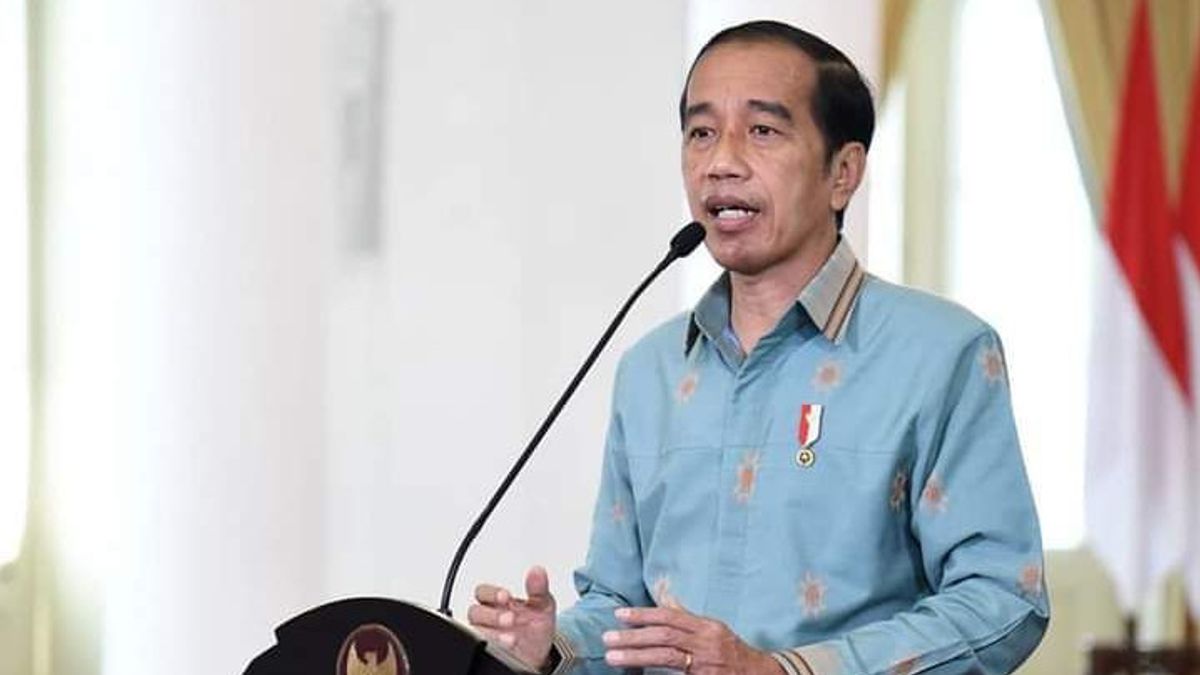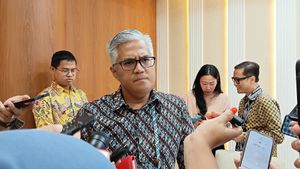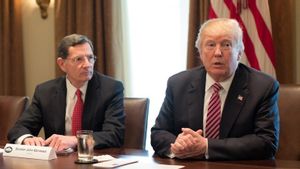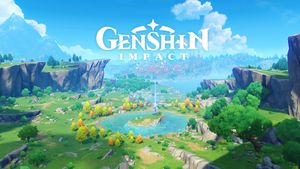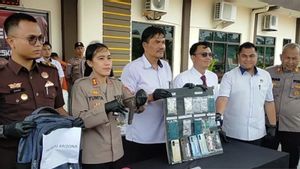JAKARTA - President Joko Widodo (Jokowi) said tackling climate change became a challenge after the COVID-19 pandemic. Moreover, the impact of this incident is very broad.
"Climate change countermeasures are a priority issue and global challenge after the easing of COVID-19," said Jokowi at the 2022 Meteorology, Climatology and Geophysics Coordination Meeting (BMKG) which was broadcast online on BMKG Info YouTube, Monday, August 8.
He revealed, in the last seven years the conditions of climate change are also getting worse. The World Meteorological Organization, quoted by Jokowi, said climate conditions were getting worse and caused the temperature to get hotter.
This is the reason that makes Jokowi ask all parties to be serious in dealing with the problem of climate change. "The World Meteorological Organization states that indicators of climate change and its impact in 2021 are getting worse, where the last seven years have been the seven hottest years," he said.
Not only a matter of getting hotter temperatures, Jokowi said that climate change could also have an impact on food security. The reason is that the Food and Agriculture Organization (FAO) states that 500 million small-scale farmers who produce 80 percent of food sources are vulnerable to climate change.
Then, the Ukraine-Russia war that has not been finished until now has also worsened the condition. Based on data from the World Health Organization (WHO), it is predicted that there are 13 million people in the world who will starve because of the inhibition of the food supply chain.
"Be careful. This is a very serious problem, it needs comprehensive handling, it is necessary to anticipate as early as possible, as quickly as possible and as well as possible," he said.
"The impact of climate change is very serious. We need to have a proven and robust policy and system to ensure equitable and sustainable food security and an early warning system when a disaster will occur," Jokowi continued.
The former governor of DKI Jakarta also ordered the BMKG to immediately identify the risks of climate change and its impacts. This step is important to help formulate prevention and response strategies.
"I ordered the BMKG to identify climate risks and their impacts as a whole. Identify what adaptations we can do," said Jokowi.
Next, Jokowi also asked the agency to increase the capacity of its human resources and equipment. Thus, information services in agriculture and fisheries areas can be accessed by the public to anticipate extreme weather.
"Expand the scope of the climate field school forum and the fishermen's weather field school so that they can have a significant impact," he concluded.
The English, Chinese, Japanese, Arabic, and French versions are automatically generated by the AI. So there may still be inaccuracies in translating, please always see Indonesian as our main language. (system supported by DigitalSiber.id)
